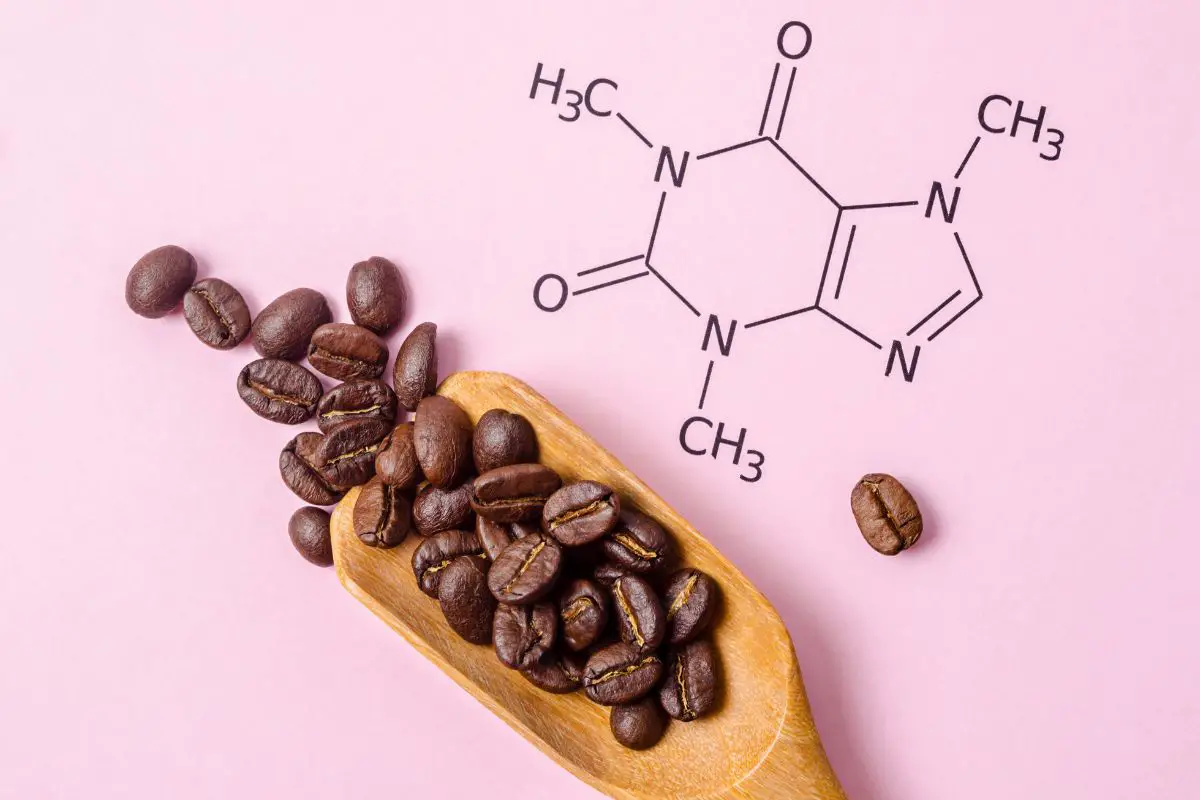Caffeine is the world’s most widely used stimulant, and its effects on our bodies are far-reaching. From impacting blood pressure to altering moods, memories and physical/cognitive performance – this plant alkaloid is a powerful drug with serious biochemical implications.

With a molecular weight of 194.19 and chemical structure of 1,3,7-trimethylxanthine, caffeine appears as a bitter white powder in its purest form. Structurally similar to purines, it has an average half-life that ranges from 1½ hours up to 9½ depending on individual traits like pregnancy or obesity – plus environmental factors such as smoking or altitude can also play into the mix!
So if you’re looking for an energy boost throughout your day (or night), remember that caffeine isn’t just about quick fixes; it’s about making conscious choices for long-term health benefits too! But how does caffeine affect the body chemically? Let’s find out.
Absorption of Caffeine
Caffeine is quickly and completely absorbed by the body, with almost all of it taking effect within 45 minutes. Whether you’re sipping coffee, tea, or soda pop – it makes its way into your bloodstream just as fast. Chewing caffeine-infused gum can also speed up absorption through the oral mucosa for even quicker effects!
On average, peak plasma concentrations are reached between 15 to 120 minutes after ingestion, but this time-frame may vary depending on individual gastric emptying time and other dietary components like fiber. Plus, once in your system there’s no need for a hepatic first-pass since caffeine passes freely from the gut to general circulation without being filtered out – which explains why intravenous and oral administration yield similar results.
In addition to moving through bodily fluids easily (about 0.7 L/kg), caffeine is lipophilic enough that it can cross both biological membranes and even make its way across the blood-brain barrier – how cool is that?
Regarding elimination rate though – two cups worth of joe will last around 2–3 hours before half has been metabolized according to one study conducted on adult men; age didn’t appear to affect clearance either!
Caffeine is quickly taken up by the kidneys once it has been filtered out in the glomeruli, so only a small amount of it actually leaves our bodies through urine. This means that metabolism is what determines how fast caffeine gets cleared from our system – not excretion itself. It’s like we have an internal filter working to keep us energized and alert! Plus, its lack of appearance in pee proves this point further.
Metabolism of Caffeine
Caffeine metabolism primarily takes place in the liver, where it’s broken down by hepatic microsomal enzymes. Despite repeated consumption, caffeine absorption and metabolism remains unaffected in healthy humans. It gets converted into uric acids, dimethylxanthines, di- and trimethylallantoin as well as uracil derivatives – a process known as 3-ethyl demethylation to paraxanthine, which makes up for around 75–80% of all caffeine breakdown.
This means that after 8 to 10 hours post ingestion of caffeine our bodies will have more Paraxanthine than Caffeine running through them; with no apparent toxic effects on levels that range from 300–500 mg/day this suggests Paraxanthine isn’t too potent either!
It looks like how much we convert each individual’s dose of coffee or energy drink is largely dependent on their own unique biochemistry – which can explain why some people feel super alert while others don’t notice any difference at all.
How Does Caffeine Affect the Body Chemically?
At the cellular level, caffeine works by inhibiting an enzyme called phosphodiesterase (PDE). This stops PDE from breaking down cyclic adenosine monophosphate (cAMP), a key second messenger that’s responsible for carrying out various hormones and neurotransmitters throughout the body.
When caffeine binds to cells, it prevents the breakdown of cAMP, leading to prolonged actions with greater intensity. In the heart, this increases norepinephrine—also known as noradrenalin—and epinephrine —often referred to as adrenaline—which is released by both sympathetic nerves near the pacemaker tissue and adrenal glands respectively. The resulting surge causes ‘fight or flight’ behavior; speeding up your heartbeat, raising blood pressure and supplying oxygenated blood more efficiently around your body in times of distress or emergency situations.
At a lethal dose, caffeine can be incredibly dangerous; however, at the right level it can provide us with an array of benefits. From allowing us to power through late-night study sessions or long work days to aiding in quicker reaction times – ingesting up to 10g has proven that its effects are real and powerful. Consuming only 1g (15mg/kg) though could cause restlessness, irritability and even delirium – so if you’re looking for those sweet energizing vibes without any of the serious side effects, think about having your next cup of Joe in moderation!